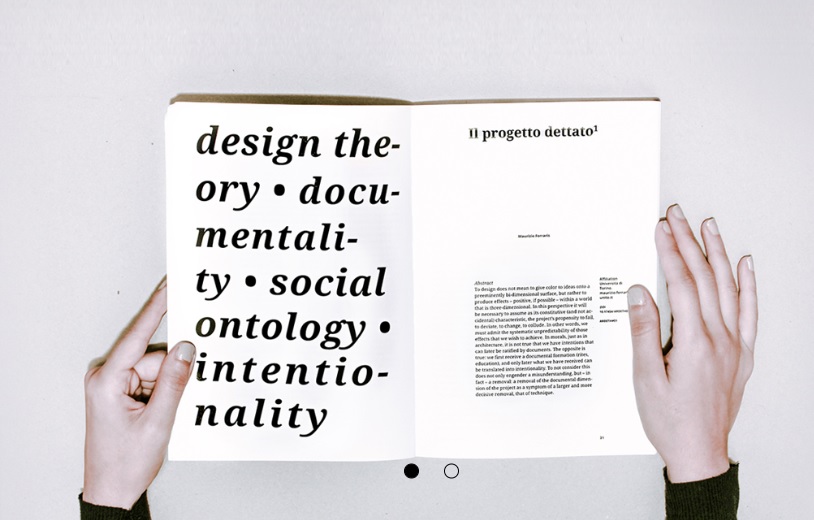Call for paper – ARDETH issue 11- “Key Words”
Theme Editor: Simona Chiodo
Deadline: August 5, 2022
Check the website: http://www.ardeth.eu/call-for-papers/key-words/
Issue 11 of “Ardeth” is designed to benefit scholars who, from design disciplines to the humanities and the sciences, wish to attempt to respond to the exercise, as well as the urgent challenge, that Wittgenstein’s words continue to pose to designers of the present and future: when we consider the use, especially the design use, of the words “beautiful”, “sustainable” and “together”, what present and what future would we like them to shape both for us and for future generations? What could and should the words “beautiful”, “sustainable” and “together” mean when they underpin design research that ultimately has the power to change both our lives and the lives of future generations? And to what forms of reality could and should the design uses of the words “beautiful”, “sustainable” and “together” lead, from artefacts to their consequences, including ethical consequences, on the quality of human existence?
The exercise becomes even more challenging if we turn from Wittgenstein’s philosophy to a key word in contemporary philosophy: uncertainty, which means that the characteristic that distinguishes our era from the past is the increasing shift from risk scenarios to uncertainty scenarios. We believe that thinking in a forward-looking way about the present and future design uses of the words “beautiful”, “sustainable” and “together” means thinking, together, about their relationships with uncertainty scenarios. When we talk about risk, we are referring to scenarios for which the logical and computational tools at our disposal can offer us credible predictions, ranging from probability to certainty. Conversely, when we talk of uncertainty, we are referring to scenarios for which the logical and computational tools at our disposal cannot provide us with credible forecasts at all, since there are no past data on the basis of which to formulate future forecasts (as is the case with phenomena that are absolute and complex novelties, from climate change to pandemics, the unpredictability of which is exaggerated by the further complexity of globality). So what could and should the words “beautiful”, “sustainable” and “together” mean when they underpin design research that addresses the uncertainty of the present and future?
Finally, although answering the posed questions may be challenging, the answers that we must work on may give designers a further opportunity: to reaffirm the reasons why design can (also) be research and not (only) practice, since, while design necessarily addresses the present and the future, it can also be exemplary for other disciplines when it successfully deals with the uncertainty of the present and future.
Issue 11 of “Ardeth” therefore invites contributors to answer the following questions in particular:
– What does the (sometimes ambiguous) use of key words such as “beautiful”, “sustainable” and “together” mean for design research in order to understand present or future scenarios dominated by uncertainty? Acceptable perspectives can be focused on one word or on several related words.
– Under what conditions can words guiding the project act as authentic key words that shed light on the complexity of meanings, rather than as superficial and contingent slogans, ranging from theoretical research to professional practice and from university teaching to technological innovation? Acceptable perspectives include design epistemology, codification of standards and their application, training and relationships with emerging technologies.
– Under what conditions can projects guided by the uses of key words, such as “beautiful”, “sustainable” and “together”, (also) be research and not (only) practice at both a methodological and applicative level?
– What advantages does the increasing shift from risk scenarios to uncertainty scenarios bring to designers, especially in cases involving one of the key words proposed by the New European Bauhaus?
This call for papers seeks to bring together contributions from the various disciplines involved in architectural design, with the aim of instigating an open discussion on the theme of key words through different kinds of experience and research: concrete design processes, historical-critical studies, theoretical studies and empirical research in the field
WHERE:
http://www.ardeth.eu/about/






